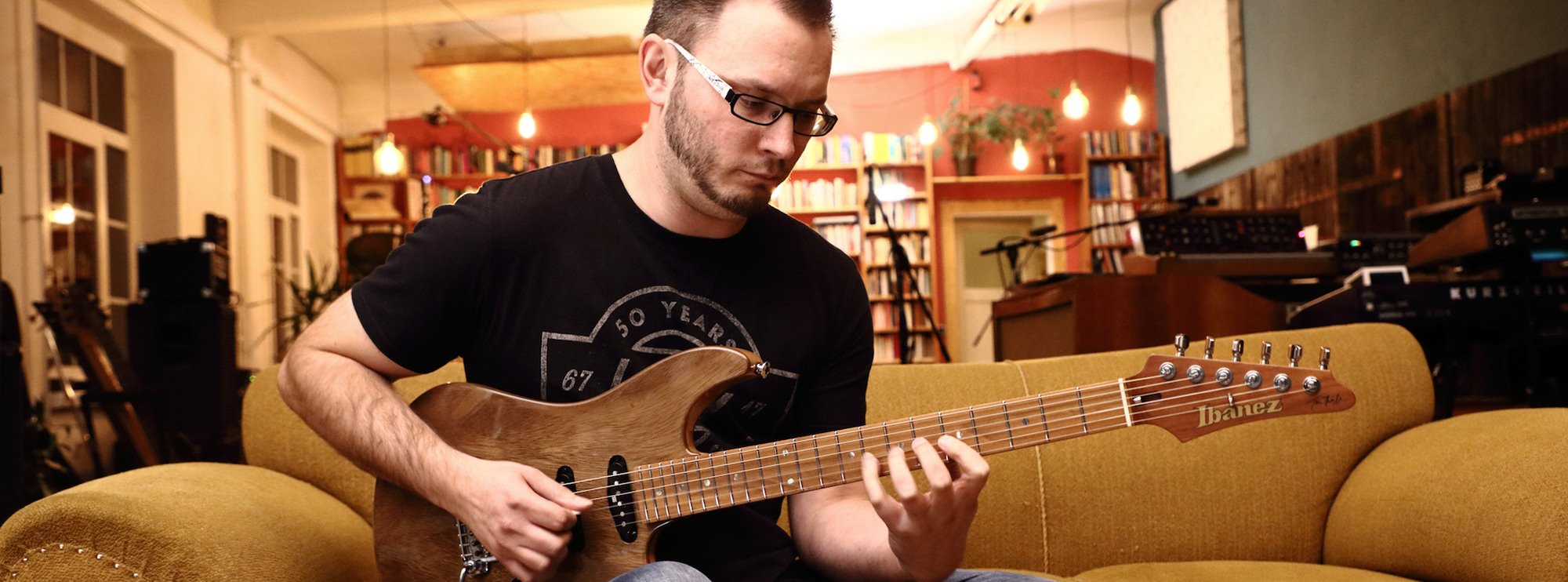Learn to Play The Clash - LickLibrary's Definitive Guitar Lessons
Immerse yourself in the raw and gritty world of punk rock with LickLibrary's comprehensive "Learn to Play The Clash" series. Here, Michael Casswell will break down iconic Clash songs note-for-note, revealing the nuanced guitar techniques, unique chord progressions, and bold solos that defined their sound. You'll master the dynamic style of lead guitarist Mick Jones, learning to echo his distinctive musical contributions to the punk scene.
Tommy Gun
Dive into "Tommy Gun," a musical exploration of syncopated rhythms and open-string riffs. The main verse involves a punk-infused progression on barre chords, demanding swift transitions and rhythmic precision. The song showcases The Clash's ability to weave complex social commentary into a driving punk format, reflecting their commitment to political and social issues.
Mick Jones's sharp solo in "Tommy Gun" heavily utilizes string-bending and vibrato, creating an intense, emotive sonic landscape. Jones often chose to pair these techniques, adding depth and texture to his solos. This song presents an ideal opportunity to develop these important skills, enhancing the expressiveness of your playing.
London Calling
One of The Clash's most recognisable songs, "London Calling" offers a rich learning ground. Its distinctive guitar intro features galloping rhythms paired with barre chords, resulting in an ominous, driving sound. The song transitions into a catchy power chord progression in the chorus, emphasizing The Clash's punk identity.
In the solo section, Jones employs double-stops and pre-bends to add tension and release. He also cleverly integrates harmonics, particularly evident during the song's ending. This adds an eerie, dissonant element to the song, underscoring the apocalyptic lyrics.
Should I Stay or Should I Go
An all-time classic, "Should I Stay or Should I Go," showcases Jones's melodic sensibilities. The song's playful rhythm guitar part is built around major chords and a straightforward progression, making it an excellent practice for beginners.
The song's solo is a lesson in simplicity and feel. It consists of short, punchy licks, primarily using the minor pentatonic scale. Jones's selective use of slides and string-bending punctuates the solo, adding subtle flair without detracting from the song's directness.
White Riot
"White Riot" is a perfect example of The Clash's early punk ethos. The song's raw energy is driven by its power chords, with palm-muting used to provide a percussive edge. The song offers practice in maintaining tight rhythms, critical for achieving its raw, propulsive energy.
Jones's solo here leans into chromaticism, a technique less common in punk rock. It adds a sense of unpredictability, reinforcing the song's rebellious spirit. The solo is an excellent exercise in alternate picking, challenging you to maintain accuracy at high speeds.
I Fought the Law
The Clash's cover of "I Fought the Law" epitomizes their ability to blend punk with other musical styles. The song features a jangling rhythm guitar part that leans heavily on open-string riffs and syncopated rhythms.
Jones's solo integrates quick hammer-ons and pull-offs, showcasing his versatility. His use of double-stop bends adds a bluesy edge, a reflection of the band's diverse musical influences. The solo offers practice in precision and quick transitions, refining your technique.
Mick Jones and His Contributions
As lead guitarist for The Clash, Mick Jones was pivotal in shaping their diverse sound. Known for his blend of punk sensibilities with rock 'n' roll and reggae influences, Jones pushed the boundaries of punk. His playing was marked by a keen sense of melody and a raw, emotive style. In our "Learn to Play The Clash" series, you'll delve deep into Jones's techniques, developing a nuanced understanding of his unique style.
Techniques List
In these lessons, you'll encounter and learn the following techniques:
- Barre Chords
- Vibrato
- String-Bending
- Syncopated Rhythms
- Open-String Riffs
- Galloping Rhythms
- Power Chords
- Palm-Muting
- Double-Stops
- Pre-Bends
- Harmonics
- Slides
- Hammer-Ons
- Pull-Offs
- Alternate Picking
- Chromaticism
Delve into these techniques and more in LickLibrary's "Learn to Play The Clash" series. You'll discover the essence of punk rock guitar, gaining the tools and insights to channel the spirit of The Clash in your own playing.
About The Tutor
Tutor Profile
Michael Casswell
It is with great sadness that we post the news of Michael Casswell's tragic death in a swimming accident while on holiday in Spain. All of us at Licklibrary are shocked and saddened by MIke's passing, and our deepest sympathies go out to his family at this difficult time. Michael...




